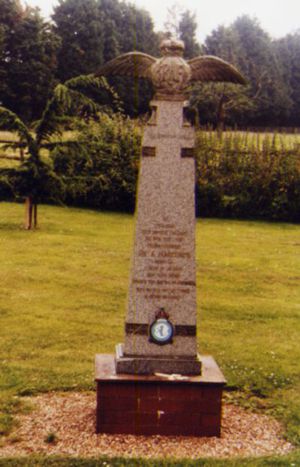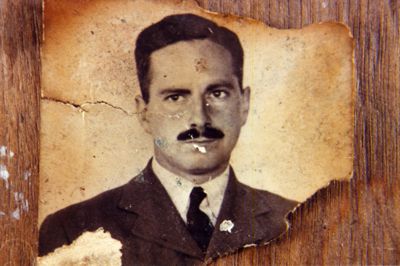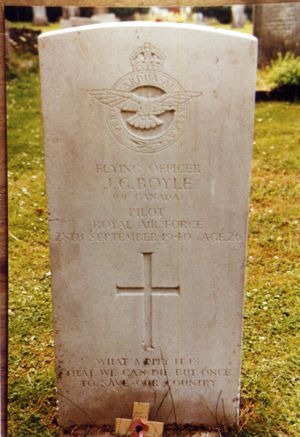Personal Recollections of the Battle of Britain 1940
Seventy one years have now elapsed since the Battle of Britain of World War 2 was fought in the skies over Kent, a great dealt of which took place over and around the Teynham area. With this in mind I believe it is essential to have these specific events recorded for the posterity of local history. Much has been written and recorded about this important time that is mostly factual. I would like to take this opportunity to add my personal experiences of this period, listing the actual aircraft crash sites of both British and German planes and their relevant details. I feel this is necessary before they become lost in the mists of time, the airmen forgotten and the geographical landscape changed forever. To assist me in this exercise I refer to an old 1940 diary of mine which thankfully us Boy Scouts were encouraged to keep by our then Scoutmaster, the Reverend Williams.
 The diary reveals the first event happening on the 15th September. On this Sunday a group of us were sauntering from the Hall of the Salvation Army having attended morning Sunday School, perhaps discussing how best to spend the rest of the day. As was usual for this period the sound of aircraft overhead broke the silence, an aerial battle was in progress, our fighters attempting to halt the German bombers on their journey to bomb London. As we watched one British fighter broke from the fight and nose dived out of sight towards the country. Immediately we followed the direction in which we thought the aircraft had crashed, eventually arriving at the cherry orchard adjacent to Nouds Farm. The plane had buried itself deeply into the ground leaving the tail portion only visible. Unfortunately the Pilot had failed to bail out. We approached the wreckage with the intention of collecting souvenirs only to be sent away by the firemen who had by then arrived on the scene. Subsequent records of this crash show that the Pilot was 22 years old Pilot Officer Marchand of No 43 Squadron, based at Debden. His Hurricane was shot down by Messerschmitts 109. Today a magnificent memorial stands on the site and a commemorative service is generally held each year on the Sunday nearest to the anniversary.
The diary reveals the first event happening on the 15th September. On this Sunday a group of us were sauntering from the Hall of the Salvation Army having attended morning Sunday School, perhaps discussing how best to spend the rest of the day. As was usual for this period the sound of aircraft overhead broke the silence, an aerial battle was in progress, our fighters attempting to halt the German bombers on their journey to bomb London. As we watched one British fighter broke from the fight and nose dived out of sight towards the country. Immediately we followed the direction in which we thought the aircraft had crashed, eventually arriving at the cherry orchard adjacent to Nouds Farm. The plane had buried itself deeply into the ground leaving the tail portion only visible. Unfortunately the Pilot had failed to bail out. We approached the wreckage with the intention of collecting souvenirs only to be sent away by the firemen who had by then arrived on the scene. Subsequent records of this crash show that the Pilot was 22 years old Pilot Officer Marchand of No 43 Squadron, based at Debden. His Hurricane was shot down by Messerschmitts 109. Today a magnificent memorial stands on the site and a commemorative service is generally held each year on the Sunday nearest to the anniversary.
The second diary entry records the crash of a Hurricane fighter in a field in Upper Ludgate Lane, Lynsted. I do not have personal recollections of this incident because I did not witness the crash, or attend the site. However records show that the plane was shot down by Messerschmitts on Monday 23rd September and piloted by Sgt. Leng of 73 Squadron, Church Fenton. He successfully bailed out landing in a plum orchard in Teynham Lane where the school now stands. He sustained injuries in the battle and made a heavy fall. I did witness his parachute descent and visited the Pilot where he was being attended by Dr Jardine prior to his transfer to Chatham Hospital.
Friday the 27th September saw us lads returning from an exploring trip to the brickfields at Conyer, walking home to lunch. We were suddenly alerted by the sound of an aircraft in trouble. Looking up we spotted a British fighter falling to the ground out of control. As it fell we saw the Pilot take to his parachute but it failed to open and he fell to his death, landing in the pear plantation on the opposite side of the Conyer Road to the Church. His plane ploughed into the ground on the outside of French's hop garden close to the path to Teynham Church. In this particular instance we were somewhat shocked at witnessing such a harrowing sight that we did not visit the crash site until some time later. The pilot of this Hurricane was 20 year old Pilot Officer Gunter of 501 Squadron operating out of Kenley. He was shot down whilst attacking a group of German Dornier bombers.
 On the following day, Saturday 28th September I was cycling from Doddington having finished my paper-round when, approaching the Bell House at Dadman's, I came across a considerable amount of activity; the reason for this being the recent dive to earth of a stricken Spitfire. A crowd had already gathered and members of the local fire service were in attendance. They were attempting to rescue the Pilot from his burning plane. Their endeavours, however, were in vain and he died at the scene; this crash site being at Erriott’s Farm, Dadman's. The Pilot was Flying Officer Boyle, a Canadian of 41 Squadron based at Catterick. He was 26 years old and is buried in Lynsted Cemetery. The only souvenir I have from this crash site is the remains of the Pilot’s identity card and his photograph given to me by a fireman who attended the scene.
On the following day, Saturday 28th September I was cycling from Doddington having finished my paper-round when, approaching the Bell House at Dadman's, I came across a considerable amount of activity; the reason for this being the recent dive to earth of a stricken Spitfire. A crowd had already gathered and members of the local fire service were in attendance. They were attempting to rescue the Pilot from his burning plane. Their endeavours, however, were in vain and he died at the scene; this crash site being at Erriott’s Farm, Dadman's. The Pilot was Flying Officer Boyle, a Canadian of 41 Squadron based at Catterick. He was 26 years old and is buried in Lynsted Cemetery. The only souvenir I have from this crash site is the remains of the Pilot’s identity card and his photograph given to me by a fireman who attended the scene.
 The fifth and final account of a downed plane which happened on Friday the 22nd November was the most horrific of the time in question. The site of the incident was at the junction of Lower Road with the Lower Norton Road. At around noon on that day a low flying German Heinkel bomber was returning from an unsuccessful raid on London having been damaged in the attempt. It was here that the plane was set upon by three Spitfires from 603 Squadron, Hornchurch. Whilst approaching the bomber one of the Spitfire Pilots was shot at and killed, his plane continuing on to collide midships with the Heinkel. Both planes fell to the earth killing all crew members. As the local firemen were tackling the resulting blaze, the bomb load still on board detonated and scattered the plane around the field killing two firemen in the process. We were at the site at the time of the explosion for the purpose of collecting souvenirs and had to dive to the ground amid falling debris; another frightening experience for us young lads. The Pilot who died from the Spitfire was Sgt. Plant from 43 Squadron, Hornchurch and he was just 21 years old. The five German aircrew were originally buried in Teynham Churchyard but later interred in the German Cemetery at Cannock Chase.
The fifth and final account of a downed plane which happened on Friday the 22nd November was the most horrific of the time in question. The site of the incident was at the junction of Lower Road with the Lower Norton Road. At around noon on that day a low flying German Heinkel bomber was returning from an unsuccessful raid on London having been damaged in the attempt. It was here that the plane was set upon by three Spitfires from 603 Squadron, Hornchurch. Whilst approaching the bomber one of the Spitfire Pilots was shot at and killed, his plane continuing on to collide midships with the Heinkel. Both planes fell to the earth killing all crew members. As the local firemen were tackling the resulting blaze, the bomb load still on board detonated and scattered the plane around the field killing two firemen in the process. We were at the site at the time of the explosion for the purpose of collecting souvenirs and had to dive to the ground amid falling debris; another frightening experience for us young lads. The Pilot who died from the Spitfire was Sgt. Plant from 43 Squadron, Hornchurch and he was just 21 years old. The five German aircrew were originally buried in Teynham Churchyard but later interred in the German Cemetery at Cannock Chase.
These five incidents, four of which I witnessed, happened in a very short space of time during the Battle of Britain and remain firmly imprinted in my memory. I was a young lad caught up in a startling burst of activity from a tranquil period in my life to a frenetically frightening time that changed my entire outlook on life and helped me mature faster than expected.
Bernard Cork
[see also battle_britain_dogfights.html ]